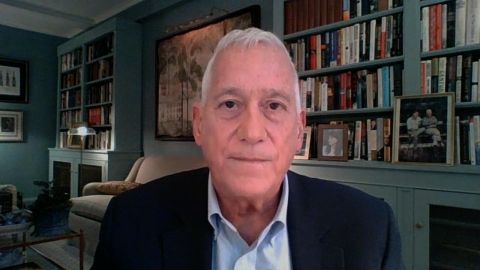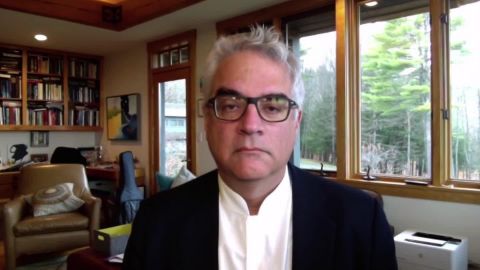Read Transcript EXPAND
CHRISTIANE AMANPOUR: Just how exciting is this, it’s the second now?
ELIZABETH COHEN, SENIOR MEDICAL CORRESPONDENT: I think it’s very exciting. I mean, Christiane, people were hoping, experts were hoping for a vaccine that was maybe 60% effective, 70% if we got lucky, 80% was like a pipe dream. But look what happened. We have two vaccines that are more than 90% effective, and where they didn’t see any serious side effects. I mean, people had headaches or body aches, but nothing really bad. That is really quite incredible.
AMANPOUR: And can you tell me, Elizabeth? Explain how it works. We understand it’s RNA-based, what exactly does that mean?
COHEN: Right. So a lot of times we think of vaccines is you give someone like a sort of a weakened version of the virus, and then you make — and then your body launches an immune attack. And that’s how your body learns. Oh, OK, this is a foreign invader. Here’s how to attack it. Instead, what this does is that, this vaccine, and Pfizer’s works the same way. Moderna and Pfizer are basically identical. It sends in a little piece of messenger RNA. That is basically a blueprint, a recipe for making the spike that sits at the top of the coronavirus. If you ever see that picture, those little red flower like things. So it tells — it gives instructions for making that spike. Your body sees the spike. It learns how to fight it. So then, when you get the real virus, your antibodies will be ready. Now, Cristiane, there’s never been a vaccine on the market that uses this mRNA, this messenger RNA technology. So if this gets approved and are authorized, this will be a first.
AMANPOUR: It is amazing. I mean, we’re really seeing it happening very, very fast. Now, I just want to ask you, you know, when Pfizer’s came out, you know, when the early results came out. There was a lot of talk about, you know, storage, how it had to be kept at a really, really low temperature. And that might, you know, might have some issues, particularly in the hot parts of the world and the poor parts of the world. Tell me about this one. Does it require the same temperature?
COHEN: It actually doesn’t. This one only requires negative minus 20 degrees Celsius. And at least in the United States, and I’m sure in other parts of the world as well, there are freezers that go that low. You have one in your house. I have one in my house. It’s just how you keep ice cream. So doctor’s offices, pharmacists, they have this freezer already. They don’t have to invent something new. Pfizer’s is very different. There’s this minus 75 degrees Celsius. Doctor’s offices and pharmacies, again, at least in the US, do not have freezers that go that low, so you have to work with dry ice and do all this other kinds of stuff. It gets very complicated, somewhat prone to error, according to state officials and doctors and nurses who I’ve talked to you. So yes, there was definitely a sense of relief that this one doesn’t have that kind of requirement.
About This Episode EXPAND
CNN senior medical correspondent Elizabeth Cohen reacts to today’s announcement that Moderna’s coronavirus vaccine is 94.5% effective. Walter Isaacson discusses his experience as a participant in Pfizer’s vaccine trial. Senate candidate Jon Ossoff (D-GA) discusses his race against Sen. David Perdue. Sociologist Nicholas A. Christakis discusses COVID-19’s ripple effect on society.
LEARN MORE



